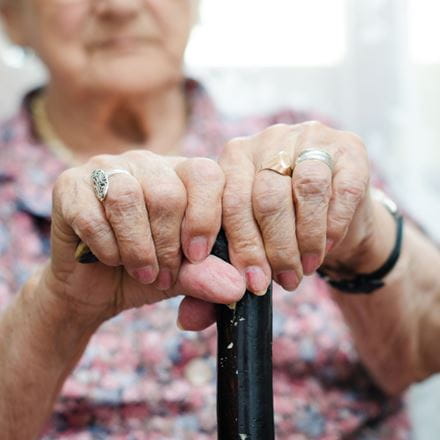Health inequalities and health systems

At Essex, we believe good health and wellbeing for all is achievable by better addressing the multiple root causes of ill-health and by taking a collaborative, interdisciplinary and global approach. Understanding societies and the global inequalities that shape them, coupled with the application of scientific, medical, and practice-based advances are at the heart of our commitment to good public health and wellbeing for all.
Health inequalities, the unfair and avoidable differences in health, are one of the most pressing public, population, and global health challenges of our time. Reducing health inequalities is the mission of our community of experts and requires understanding and tackling the multitude of factors contributing to such inequalities, including the social and wider determinants of health, and supporting health systems with the best evidence base for making informed organisation- and practice-focused decisions.
Experts in the Department of Economics, Institute for Social and Economic Research, and School of Health and Social Care are embracing the challenge of exploring the role of the wider determinants of health in shaping individual and population health and wellbeing profiles.
Our research employs diverse methodologies to understand the lived experiences of the disadvantaged, the bolsters and barriers in their communities, and the policies contributing to health and care provision.
We work with our community and governmental stakeholders to drive needs-based research that will promote fairer and better health and care, championed by strategic research centres – the Centre for Coastal Communities and Centre for Global Health and Intersectional Equity. Experts are working locally to explore new ways of working and co-production within our three local NHS Integrated Care Systems, to increase collaboration, deliver health services and address inequalities.
At a local level, in the School of Sport, Rehabilitation and Exercise Sciences, a team has evaluated a place-based project designed to reduce health inequalities in the Epping Forest District in Essex, where there are concentrations of economic and health deprivation within specific locations.
University of Essex experts from the Institute for Social and Economic Research and the School of Health and Social Care have been awarded £5m for a collaborative project which will help reduce health inequalities across the county of Essex. The new Health Determinants Research Collaboration, the first of its type in the region, is funded by the National Institute for Health and Care Research (NIHR) to boost research capacity and capability in some of the UK’s most deprived areas. Film-makers in our Department of Literature, Film and Theatre Studies have created documentaries films highlighting life-affirming stories of community cohesion.
Research projects
Evaluation of the Mid and South Essex Integrated Care Board health inequality projects
This project will evaluate a series of interventions commissioned by the MSE-ICB with the aim to reduce regional health inequalities (such as befriending, blood pressure, social prescribing, green prescribing) and improving access to services.
Using both qualitative and quantitative methods ad hoc evaluation tools are used to provide the evidence needed for scaling-up services and future investments.
Researchers
- Dr Shadi Rahimzadeh - Postdoctoral research Fellow at the Institute of Public Health and Wellbeing, University of Essex
- Tracey Johns - Senior Research Officer in the School of Health and Social Care, University of Essex
- Dr Sara Jalali-Farahani - Postdoctoral Research Fellow at the Institute of Public Health and Wellbeing, University of Essex
- Dr Honor Bixby - Postdoctoral Research Fellow at the Institute of Public Health and Wellbeing, University of Essex
- Natalie Evans - Postgraduate Research Student in the School of Health and Social Care, University of Essex
- Prof. Mariachiara Di Cesare - Director of the Institute of Public Health and Wellbeing, University of Essex
Which place-based policies would be most effective in levelling up the life chances of young people living in coastal towns, to the rest of the UK?
This project aims to examine the ways in which growing up in a Coastal Town can impact on young people’s life chances – that is, their likelihood of having good outcomes int adulthood in terms of education, work, and health/wellbeing.
Researchers
- Dr Emily Murray, Centre for Coastal Communities, University of Essex.
Coastal youth: Exploring the impact of coastal towns on young people's life chances
We're working to examine the ways in which growing up in a coastal town can impact on young people’s life chances; that is, their likelihood of having good outcomes in adulthood in terms of education, work, housing, and health and wellbeing. We focus on coastal towns as some of the most deprived neighbourhoods in the UK are now in coastal areas.
Further information can be found here.
Researchers
- Dr Emily Murray - Director of the Centre for Coastal Communities, University of Essex
- Prof. Avril Keating - Associate Professor of Education, Practice and Society, University College London
- Prof. Stephen Jivraj - Associate Professor of Epidemiology and Public Health, University College London
- Prof. Claire Cameron - Professor at the Social Research Institute, University College London
- Dr Sam Whewall - Research Fellow in education, Practice and Society, University College London
Dementia - Intersectional Narratives
This project will capture the experiences of two groups of people; LGBT+ people and carers living with Dementia, and people under 65 living with dementia and their carers.
We take a Rights-Based research approach to empower participants to further present their experiences to commissioners or providers and/or undertake further research conversations as Expert Researchers. And we seek to identify microaggressions, heteronormative structures, and symbolic interactions to identify the components and processes to ensure Person-Centred Support in provision.
Further information can be found here.
Researchers
- Clare Hammerton, School of Health and Social Care, University of Essex
Impact evaluation of the Health Wellbeing and Care Hub
Our researchers will design the evaluation strategy for the University of Essex Health, Wellbeing and Care Hub and develop an innovative evidenced-based research approach being applied to all services and interventions.
Researchers
- Srinidhi Koya - Research Fellow in the School of Health and Social Care, University of Essex
- Prof. Mariachiara Di Cesare - Director of the Institute of Public Health and Wellbeing, University of Essex
- Prof. Victoria Joffe - Dean of the School of Health and Social Care, University of Essex
- Prof. David O'Mahony - Professor at the Essex Law School, University of Essex
Research into new ways of working and co-production within 3 ICSs & increase collaboration in practice to deliver health services and address inequalities
This project will explore collaborative working opportunities between 3 ICSs in Essex County and aim to deliver a joined-up intervention to address health inequalities in the county.
Researchers
- Ben Gould, School of Health and Social Care, University of Essex
Addressing the right to healthcare for Travelling Communities
Currently, the right to access healthcare in the UK for Gypsy, Roma, Showmen, and other Traveller communities is not being met. These communities live on average 10 years less than the general population, and they continue to experience deep and persistent exclusion, discouraging and preventing access to healthcare.
There are a series of interacting barriers to access, including a lack of trust, which create a wide range of health inequalities as well as other issues of social and material disadvantage.
This project applied principles of involvement to develop methods for including the most persistently marginalised groups in healthcare research and provision. The team spent 18 months working with community groups to develop collaborative ways of working that are culturally competent.
Place-based health inequalities
Dr Emily Murray, Director of the Centre for Coastal Communities, has used data from Understanding Society, the UK Household Panel Survey hosted at the University of Essex, to explore the relation between young people’s place of residence and later physical and mental health outcomes.
Analysis found that self-rated health as well as long-term illness were significantly worse 11 years later, for those who lived in coastal areas as teenagers. When coastal areas were separated out by area deprivation categories, further analysis found that teenagers living in deprived coastal areas had significantly worse mental health 11 years later than their peers in equally deprived area inland.
Coastal Gap in Equality for Stroke Care Management (CoastGEM)
In the UK, 100,000 people suffer from strokes annually, with two-thirds suffering disability upon hospital discharge.
The School of Health and Social Care is working with East Suffolk and North Essex NHS Foundation Trust to identify inequalities in effective stroke care, their negative health outcomes, and their determinants.
The project has three primary work streams, and has already identified several key areas for improving stroke care.
Centres and institutes
Research news
Looking for more?













